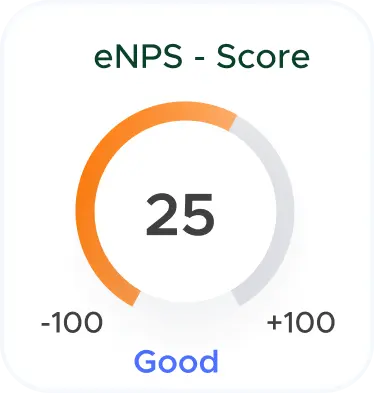✨ لا تفوت الفرصة! سجل في ندوة تقدير الموظفين عبر الإنترنت المقرر عقدها في 29 فبراير. 🎖️
✨ لا تفوت الفرصة! سجل في ندوة تقدير الموظفين عبر الإنترنت المقرر عقدها في 29 فبراير. 🎖️
سجل الآن
Trip rewards are benefits or perks that are offered by travel companies, airlines, hotels, or credit card companies to their employees.
The reasons why trip rewards are important include the following:
The factors which influence the value of trip rewards are:
Travel companies should offer trip rewards to employees for several reasons:
Trip rewards can significantly influence travel decisions by providing incentives and motivations for individuals to choose specific destinations, make travel bookings, and engage with particular brands or loyalty programs. Here's how trip rewards influence travel decisions:
To maximize the benefits from trip reward programs, both travelers and travel companies can implement various strategies:

هذه استطلاعات قصيرة يمكن إرسالها بشكل متكرر للتحقق من رأي موظفيك في مشكلة ما بسرعة. يتضمن الاستطلاع عددا أقل من الأسئلة (لا يزيد عن 10) للحصول على المعلومات بسرعة. يمكن أن تدار هذه على فترات منتظمة (شهرية / أسبوعية / ربع سنوية).

يعد عقد اجتماعات دورية لمدة ساعة لإجراء دردشة غير رسمية مع كل عضو في الفريق طريقة ممتازة للحصول على إحساس حقيقي بما يحدث معهم. نظرا لأنها محادثة آمنة وخاصة ، فإنها تساعدك على الحصول على تفاصيل أفضل حول مشكلة ما.

eNPS (نقاط صافي المروج للموظف) هي واحدة من أبسط الطرق الفعالة لتقييم رأي موظفك في شركتك. يتضمن سؤالا مثيرا للاهتمام يقيس الولاء. تتضمن أمثلة أسئلة eNPS: ما مدى احتمال أن توصي بشركتنا للآخرين؟ يستجيب الموظفون لاستطلاع eNPS على مقياس من 1 إلى 10 ، حيث يشير 10 إلى أنهم "من المحتمل جدا" أن يوصوا بالشركة ويشير 1 إلى أنهم "من غير المحتمل للغاية" التوصية بها.
